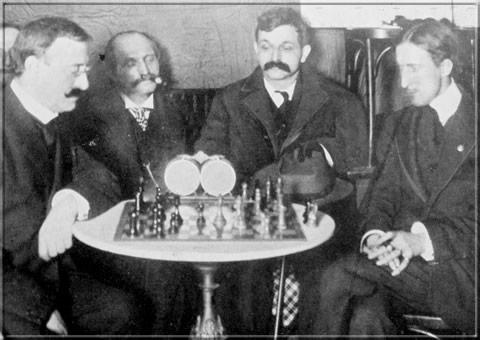
A Century of Chess: Vienna 1907
One of the great unvarying constants of the classical era was the performance of Jacques Mieses. Mieses established himself as a world-class player in 1889. From then until roughly 1910 he was always in the top fifteen or twenty in the world but never higher than that. His tournament performance was nearly as regular as that of Richard the Fifth Teichmann. He finished eighth at Paris (1900), at Monte Carlo (1903), at Cambridge Springs (1904). While certainly a dangerous and brilliant player, his inconsistency seemed to even out and bring him right into the middle of the pack.

Only once in his international tournament career, at the 1907 Trebitsch Memorial in Vienna, did Mieses break out of the middle tier and take first prize in an international tournament. Here, in a very strong field heavily composed of younger generation stars, Mieses put on a showcase of his great ability - choosing imbalances from the very first moves, with the Danish Gambit as white and Scandinavian Defense as black, and searching constantly for the brilliant, beautiful tactic without ruining his own position.
Oldrich Duras was reaching the peak of his career. He scored +5 in this tournament, playing wild, combinative chess that made Mieses look like a shrinking violet.
"The tournament was a triumph for players who favor brilliancy over ultra-modern tendencies" was the verdict of the 1907 yearbook but that's not putting it quite right. There was a new wind in chess in 1907 and what was exhibited across the crosstable at Vienna wasn't so much the Romantic-Classical argument as the rise of the sturm und drang generation - Duras, Vidmar, Tartakower, Spielmann - who tended to seek out complications for their own sake while the "grand pandrandrums" (in Tartakower's phrase) Schlechter and Maróczy seemed suddenly a step behind.
The tournament was the international début of Savielly Tartakower. Full of youthful confidence, he was convinced he would win the whole event - although shared third was a remarkable achievement.

He describes his style at the time as "light, superficial, purely intuitive, and very up-and-down!"

